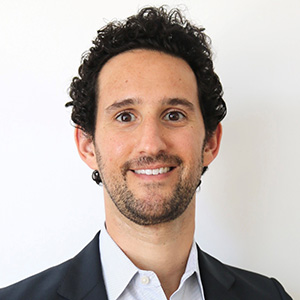 The industry event anyone in secured finance attends now celebrates its 77th year. SFNet is set to make the Arizona convention a memorable one. Click below to register.
The industry event anyone in secured finance attends now celebrates its 77th year. SFNet is set to make the Arizona convention a memorable one. Click below to register.

Carlos J, Medina
Senior Vice President, Bank of America Business Capital
40 Under 40 Category: Underwriting
Carlos is a senior underwriter with Bank of America Business Capital (“BABC”). He structures and underwrites asset-based financing solutions for medium- and large-sized businesses.
Carlos brings a diverse set of professional experiences, having worked in both cash flow and asset-based lending across multiple geographies including New York, London, and Los Angeles in addition to time spent outside of the finance world working in Kobe, Japan.
Outside of his day-to-day work responsibilities, Carlos is the Finance Chair for Bank of America’s Southern California chapter of the Hispanic/Latino Organization for Leadership & Advancement (“HOLA”) employee network as well as a competitive endurance athlete focused on triathlon. Carlos earned his B.S. in finance from The Pennsylvania State University and is currently a CFA charter holder.
What is your definition of success?
Success for me is constant improvement. I apply this definition of success in my own life through three main concepts: taking a “big picture” view, seeing life as an iterative process, and being truly honest but generous with myself.
Looking at the “bigger picture” means stepping away from the outcome of any one situation and not allowing it to define me. Any one result, good or bad, is not who I am as a person, and allowing any one thing to define me could derail future growth and ultimately improvement over a lifetime of experiences.
Having that big picture outlook allows me to see life as an iterative process, always improving and never truly finished. Taking my professional life as an example, the iterative process of regularly structuring financing solutions allows me to learn and enhance my approach with each and every new customer. At the end of each internal credit committee discussion, financing pitch or new deal closed, I reflect on terms proposed, actions taken, and the ultimate outcome, analyzing what worked and what did not and pulling lessons from that experience that can be used to enhance the next financing opportunity.
Finally, being honest but generous with myself keeps me on the road to constant improvement while avoiding burnout. Being honest means identifying my mistakes and underperformance in order to properly address and improve on those instances. In order to fix an issue, that issue needs to be properly identified first. Being honest with myself helps in identifying issues. However, in being generous, I don’t get too down on myself for mistakes; I choose a mindset focused on fixing them in the future.
In the end, success to me is regularly enhanced performance through the application of lessons learned over time. I need the “bigger picture” to avoid getting bogged down in any one situation or outcome and honesty and generosity to ensure opportunities for improvement are identified and addressed while avoiding any one issue becoming too overwhelming.
What advice do you normally give to the junior talent you mentor?
Three main pieces of advice that I give to junior talent are for them to drive their own career, to apply past lessons to future performance, and to assume benign intent.
While junior talent is often very motivated and hardworking, many junior employees take a more passive approach to their career progression. In order to drive their career, junior talent needs to regularly consider job responsibilities they enjoy and want to pursue further and which responsibilities they prefer to minimize. This process should include conversations with colleagues and new contacts met through networking in order to understand the broad set of professional opportunities available and the expectations for each. With a clear understanding of their own preferences and the day-to-day requirements of various jobs, junior talent can focus on where they want to apply their skills and pursue those opportunities.
Applying past lessons to future performance is critical to enhancing one’s skill set. Another way to say this is to say learn from mistakes and experiences. I remind mentees that everyone makes mistakes, from executives to recent graduates. The critical driver to improve your performance and demonstrate your capacity for growth is to learn from those mistakes by not making them again the next time around.
Finally, assuming benign intent is to take professional communication, particularly email and other written communication, at face value. Written communication is not ideal for conveying emotions or intent, so the less time spent “reading into” a sender’s intent behind an emailed word or phrase, the more time available to put toward productive pursuits.
77th Annual Convention
 The industry event anyone in secured finance attends now celebrates its 77th year. SFNet is set to make the Arizona convention a memorable one. Click below to register.
The industry event anyone in secured finance attends now celebrates its 77th year. SFNet is set to make the Arizona convention a memorable one. Click below to register.
